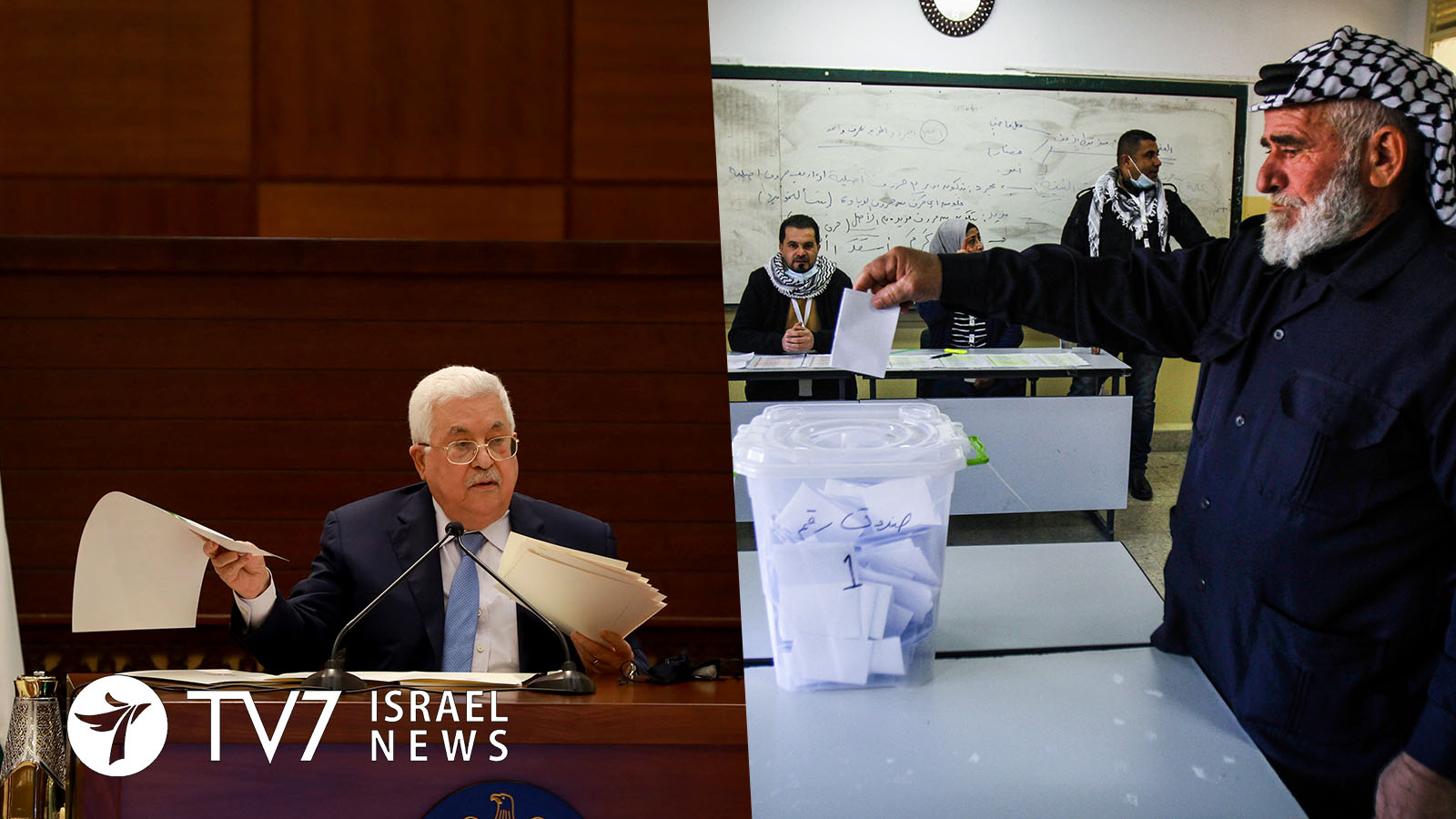As expected, Palestinian President Mahmoud Abbas ‘postponed’ 22 May parliamentary elections amid internal divisions among his Fatah party and a dispute with Israel over voting by Arab residents in east Jerusalem.
The decision comes only 3 months after Abbas announced the first elections in 15 years, in what was widely seen as a response to criticism of the democratic legitimacy of Palestinian institutions – including his own presidency. The 85-year-old Abbas was elected to a 4-year term in 2005.
Israel and Western nations quietly welcomed the decision, over projections that the internationally-recognized Islamist Hamas terror group which rules Gaza would make major gains over their bitter Fatah rivals.
Abbas and his allies were also trailing in the polls to challengers from within his own Fatah faction which had split into three rival lists.
In an apparent attempt to divert focus to the perceived common enemy Israel, Abbas made no mention of internal Palestinian clashes while declaring there would be “no compromise” over voting in Jerusalem, and that the polling would be delayed until the participation of residents in the city was “guaranteed.”
Jerusalem is at the heart of the Israeli-Palestinian conflict. The contested city was divided after Israel’s 1948 War of Independence and reunited after Israel captured the eastern side from Jordan in the 1967 Six Day War. Israel legally annexed that territory in 1980 and regards Jerusalem as its indivisible capital, while Palestinians want the eastern sector for their future state.
A spokesman for Israeli Prime Minister Benjamin Netanyahu’s office said last week that there had been no formal announcement on whether Jerusalem Arabs would be permitted to cast ballots as they had during the last elections in 2006.
Hamas immediately condemned Abbas’ decision as “a coup” and said it violated ” the national consensus and popular support” for new elections.
Demonstrators gathered throughout the Palestinian territories to protest the move.
“The people want to go to the ballot box!” chanted crowds in Ramallah.
“We came here to show a clear, honest stance of not us wanting to delay elections and we want to have them as a democratic national right in the Palestinian arena and there is no excuse or pretext that would make the decision makers and the ones who are controlling these decisions to postpone these elections, no matter what their excuse is,” activist Nasser Abu Khdeir told Reuters.
Hebron resident Wael Deys said that, “As a young Palestinian citizen, I call for conducting elections, and I want my right to elect so I would see new faces, young faces, and see new political stances and hopefully there will be elections, and hopefully we all get to vote even in Jerusalem, in the consulates – in all of Palestine and not only Jerusalem.”
The European Union expressed disappointment while also directing criticism at Israel. High Representative of the EU Foreign Policy Chief Josep Borrell called for the facilitation of “credible, inclusive and transparent’ elections across all of the Palestinian territory, including in East Jerusalem.”
The United States, however, sought to distance itself from the assigning blame to the Jewish State.
“The exercise of democratic elections is a matter for the Palestinian people and for the Palestinian leadership to determine,” spokesman Ned Price told reporters in Washington. “We believe in an inclusive political process.”
Although there has yet to be an official statement from Ramallah, it is believed that the Palestinians also intend to indefinitely delay presidential elections slated for July.
